watch now!
A place where I discuss all things related to toddlers and motherhood!
Subscribe to my Youtube channel
As a clinical psychologist, published author, and mother to two cheeky young children, I get it. I’ve spent YEARS researching and filtering through the noise online, so you don’t have to.
PARENTING TIPS
POTTY TRAINING
ANTIRACISM
PLAY
Blog Topics
SIBLING RIVALRY
SCREEN TIME
TANTRUMS
DISCIPLINE
Hi I'm Dr. Jazmine
What To Do When You Lose Your Cool With Your Child: 10 Steps to Repair
topics:
Even the calmest and most patient parent is going to lose their cool with their toddler or child from time to time. While more patience is always the goal, it’s a small fact of life that you’re going to slip up. You’re going to make mistakes as a parent, and at times, you’re going to lose your temper with your child.
But I think you can push the guilt aside, get your feelings out of the way, and see these moments as wonderful teaching moments. Because here’s the thing: Modeling is the best way we teach our children.
You can model for them what it looks like making mistakes and what it looks like being human. And then, of course, what it looks like repairing and recovering from those mistakes by apologizing and increasing the connection in your relationship.
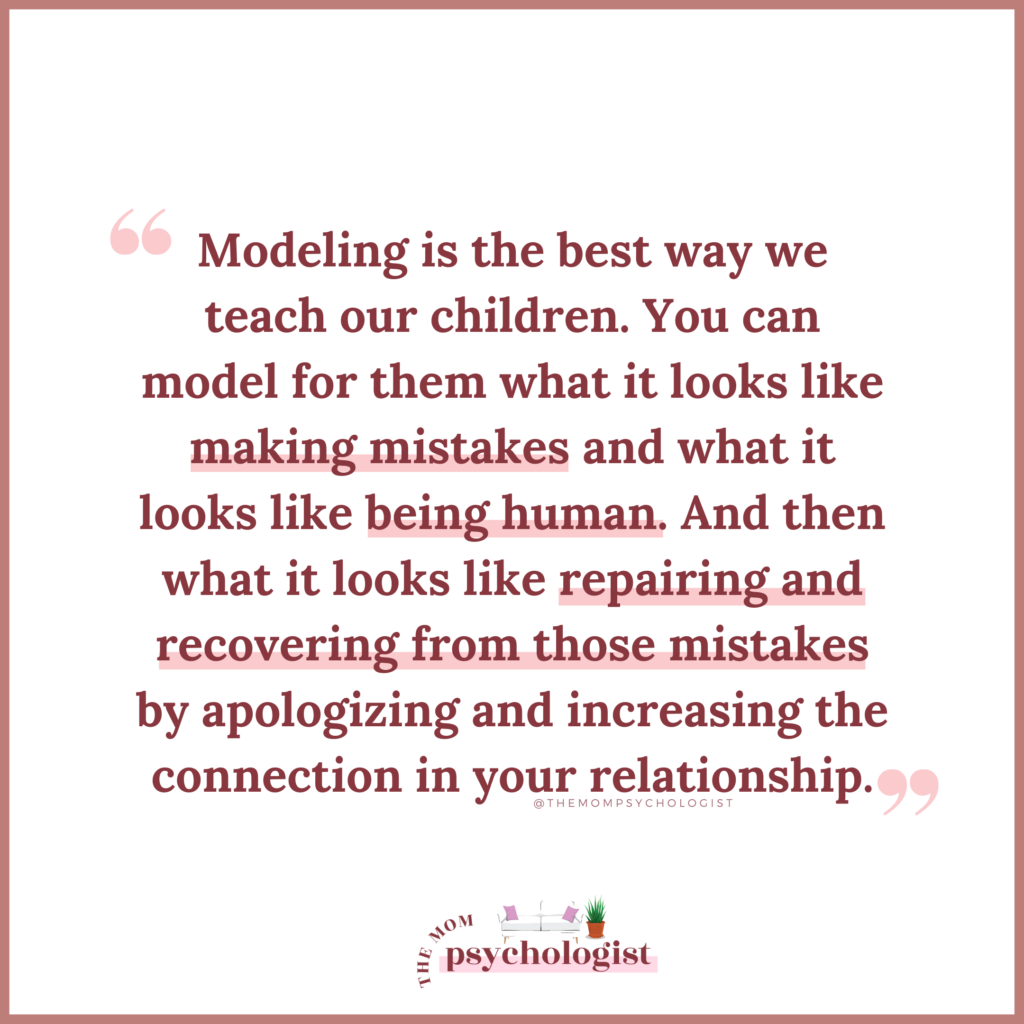
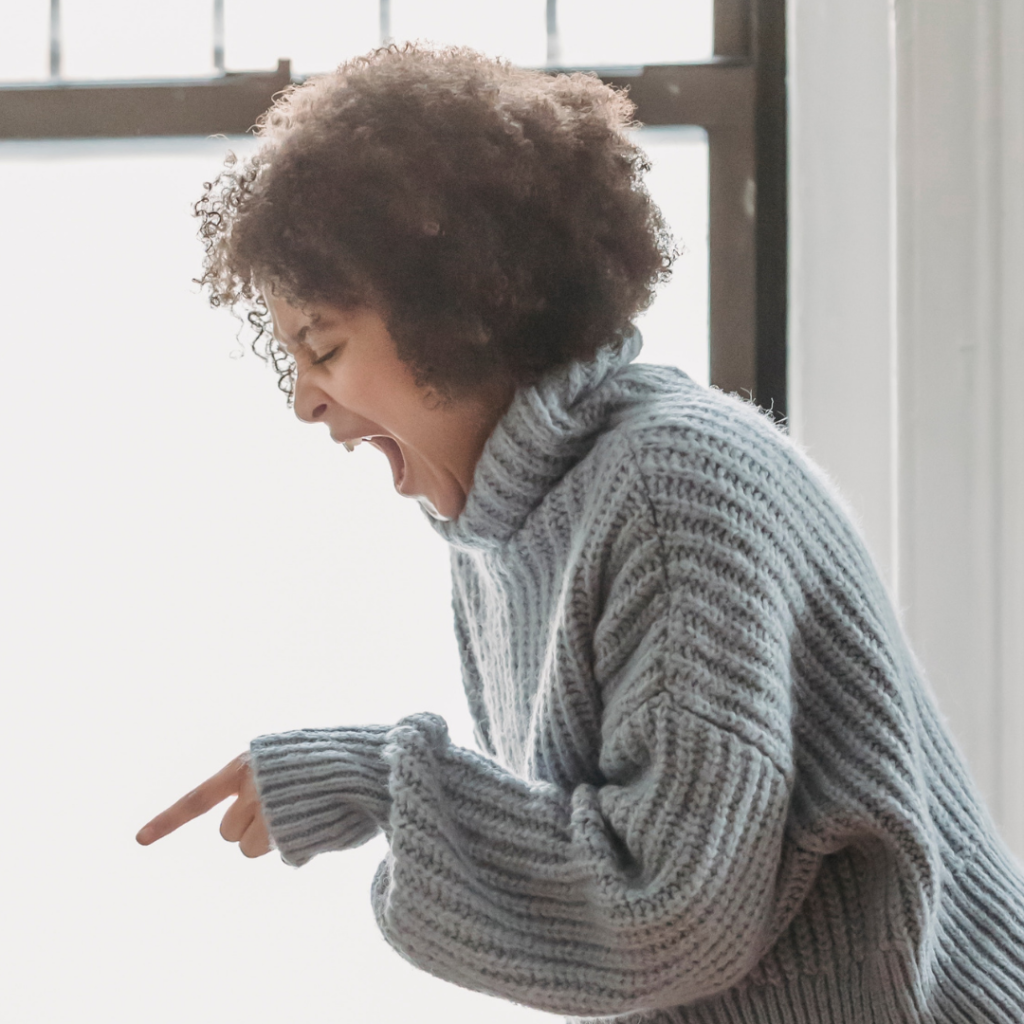
I’m going to share my simple 10-step guide you can use when you lose your cool with your toddler or child.

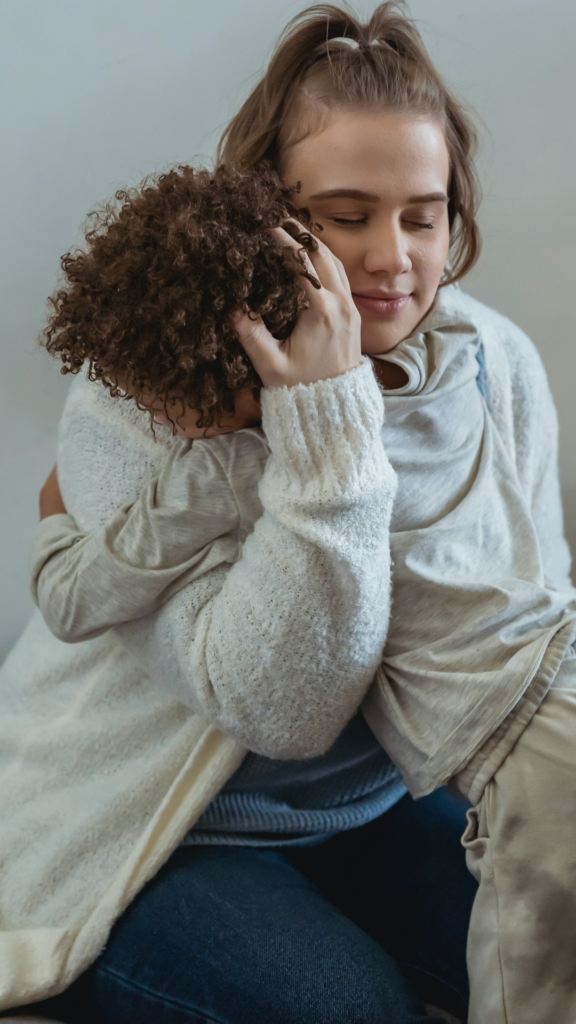
Step #1: After losing your temper, bring yourself back to baseline
This is important.
You can’t do all the other nine steps until you’ve calmed down and are back to baseline.
So whether that’s deep breathing, taking a break, splashing water on your face, calling a friend, or texting somebody, you need to calm your nervous system down and bring yourself back to the present moment.
Step #2: Tell yourself something positive about yourself & your child
When we make mistakes in parenting, we love to beat ourselves up. You may tell yourself what a horrible parent you are, how you will never get this right, how your kid is going to grow up to hate you, and on and on.
All the negative self-talk starts to settle in. So you have to fight back.
You’re going to want to fight those negative statements by telling yourself something positive.
“I am a good parent. Bad moments don’t make me a bad parent. I’m doing the best that I can. I can recover from this. We can recover from this. My child is doing the best that they can. They will forgive me.”
Set yourself up for success by showering yourself with lots of compassion and a lot of positive self-talk, not only about your child but also about yourself.
Step #3: View the situation that triggered your anger from your child’s perspective
Often when you respond in anger, it’s because you’re responding out of autopilot and your empathy has flown out the window.
So all you can focus on is that this moment or situation is so frustrating, so irritating. But try to challenge yourself to see the situation from your child’s eyes.
What were they thinking in those moments? How were they feeling in those moments? What might have caused them to do what they did so that you can draw more compassion for them?
Step #4: Take responsibility for your actions
So often what happens is you have all this guilt, but then you rush to defend yourself. “Well, if they hadn’t tipped that over or they would’ve been nicer to their sister, I wouldn’t have lashed out at them. If they would’ve listened to me, then I wouldn’t have gotten angry.”
But it’s really important in this process to focus and acknowledge your wrongdoings and take responsibility.
Because no one can make you feel a certain way or do certain things without our permission. You are the adult in these situations, and you have to remind yourself of that.
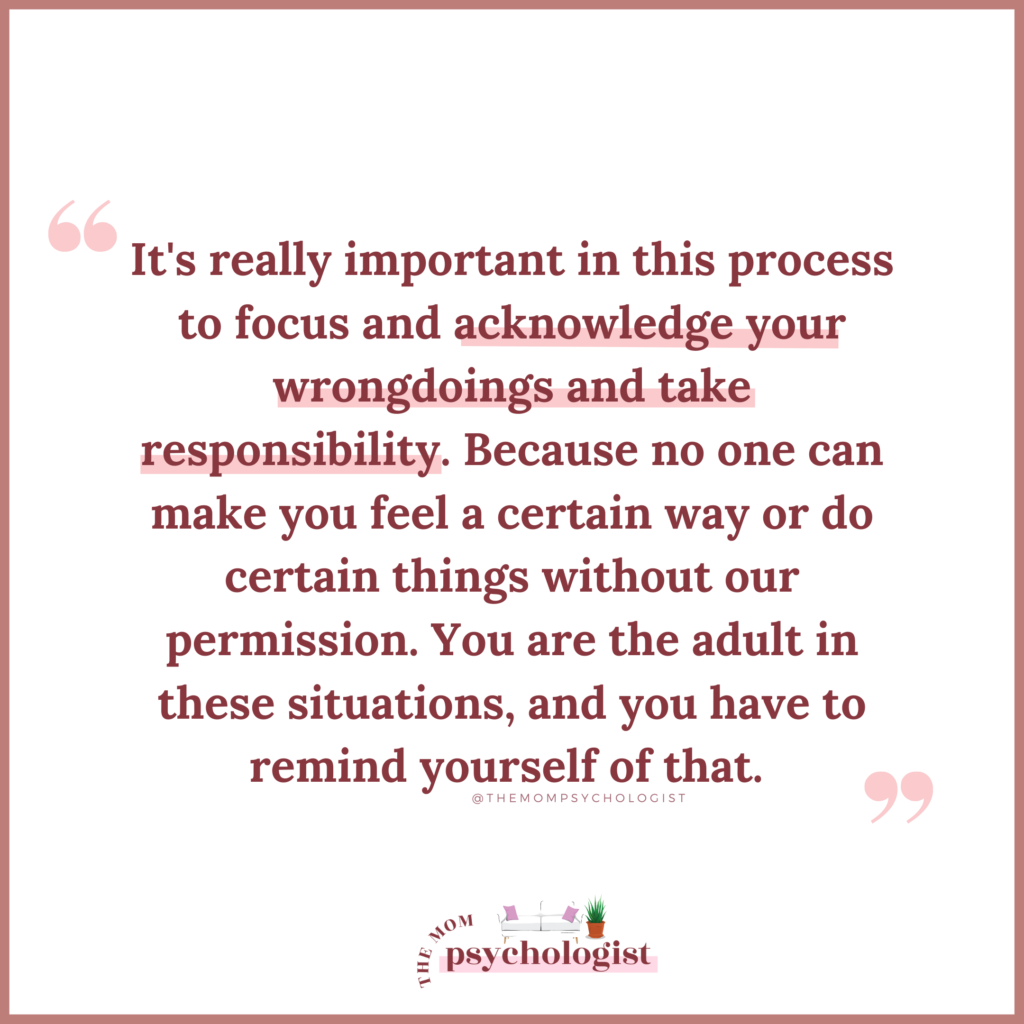
Step #5: You HAVE TO apologize to your child
This step is SO important.
And it starts with getting down on their level and sincerely apologizing to them.
You want to identify your feelings and own up to your feelings. This is an opportunity to model that everybody feels mad from time to time.
You can say something like, “I’m so sorry for yelling at you a moment ago. I got mad. It’s always ok to have feelings, but it’s my responsibility to make good choices even when I feel really BIG feelings. I shouldn’t have yelled.”
Remember, there are no “buts” when we apologize. “I shouldn’t have yelled, but… you shouldn’t have smacked your brother.”
When you say an apology and then “but,” you’re negating what you said. You’re throwing them on the defensive. Now it’s not about an apology, it’s about blaming the other person for your actions.
So you’re just going to say, “I got upset. I’m sorry for getting upset. I shouldn’t have done that. What I should have done was this.”
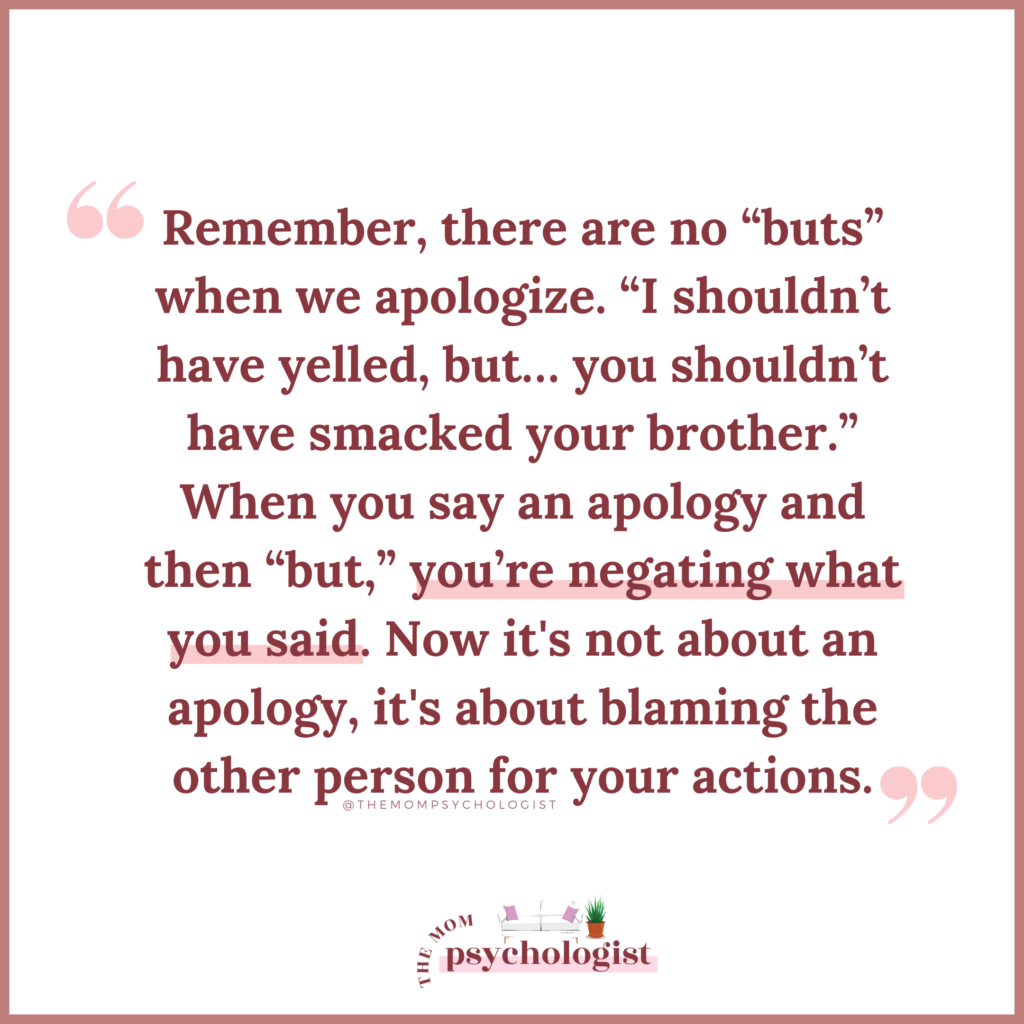
Shedding light on what the better choice would have been is another subtle way to teach your child better coping skills and choices to make when they feel overwhelmed.
Examples might be:
- I should have taken a break before trying to talk to you.
- I should have said it this way.
- I should have tried to learn your perspective before rushing to conclusions.
- I should have had a snack first. I now realize I’m really hungry. I tend to get angry and lash out when I’m hungry. Mama’s HANGRY!!
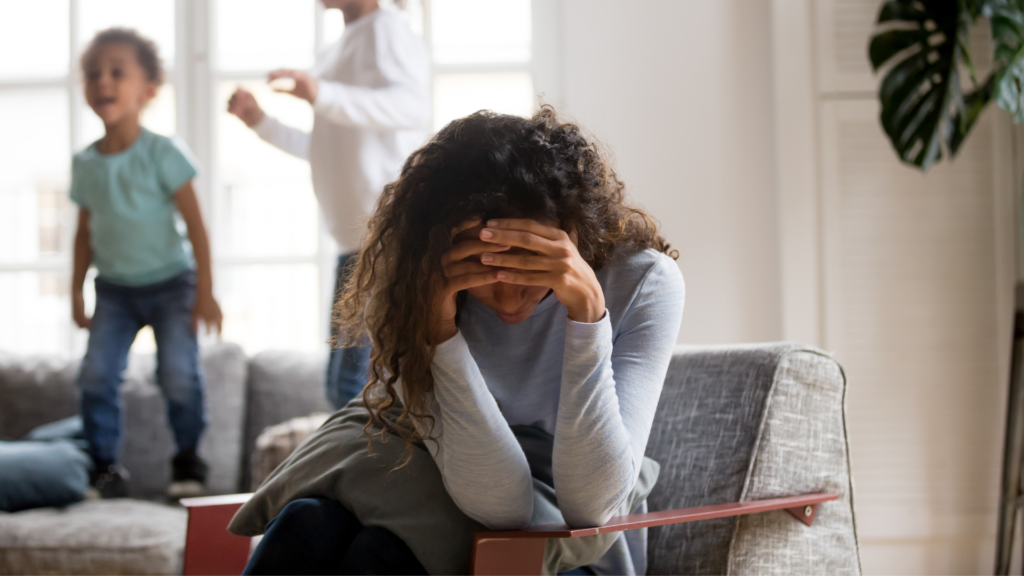
Step #6: Offer some physical affection to help repair and reconnect
You can offer them some hugs, some kisses, some cuddling time to sit in that moment with them if they want it.
Always read your child’s cues. If they’re not ready for that, that’s okay. But you want to offer it to them.
Step #7: Let your child share how they felt and what they experienced when you yelled at them
One of the biggest parts of this repairing process is to honor and provide space for your child to open up to you about how the experience was for them.
But, of course, only if they are ready and open to it.
You can ask them, “How did you feel when I yelled at you? What was going through your mind? What was this experience like? I want to hear what you have to tell me. Our relationship is so important that I want to hear what you have to say.”
This can be hard to hear. But a huge part of the healing and repairing process is doing your best to make your child feel heard, seen, and validated.
This step might not apply to everyone. If your child is on the younger side, they might not know how to verbalize their feelings. So you might skip this step, but again, you want to come from a place of listening and connection.
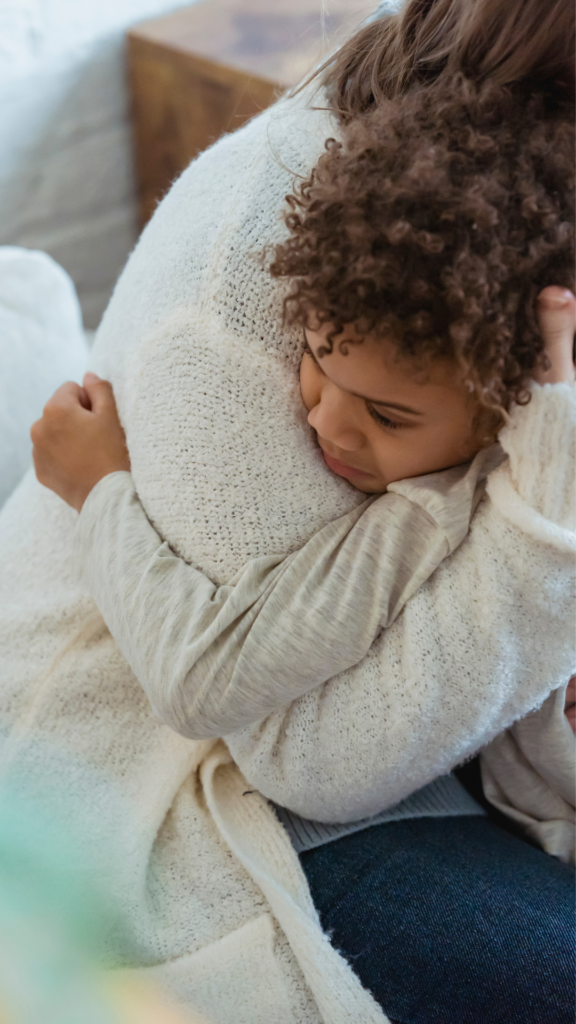
Step #8: Work to prevent yourself from losing your cool again
What can you do in those moments a little differently to prevent yourself from losing your cool? Reflect on this and come up with a plan.
Once you have a plan, share that with your child. This is a GREAT modeling opportunity to tell them what you will do when you get mad: “When I get mad, I’m going to take a break. I’m going to go sit down somewhere. I’m going to get a glass of water. I’m going to splash water on my face. I’m going to go to the bathroom. I’m going to take some deep breaths.”
Because again, that’s great modeling for them, since those are things they can try when they get upset or mad.
Step #9: Practice forgiveness and compassion for yourself
You cannot make a change within yourself if you’re beating yourself up all the time.
Guilt does not produce change. Self-compassion does.
And that’s for any relationship: your relationship with yourself, your relationship with your partner, your relationship with your friends and family, and your relationship with your child.
People cannot do better unless you meet them with lots of compassion. Do the same for your own mistakes. Offer yourself so much compassion during these moments when everything in you wants to tell you, “I’m a bad parent. I’m a screw-up. I’m never going to get this right.”
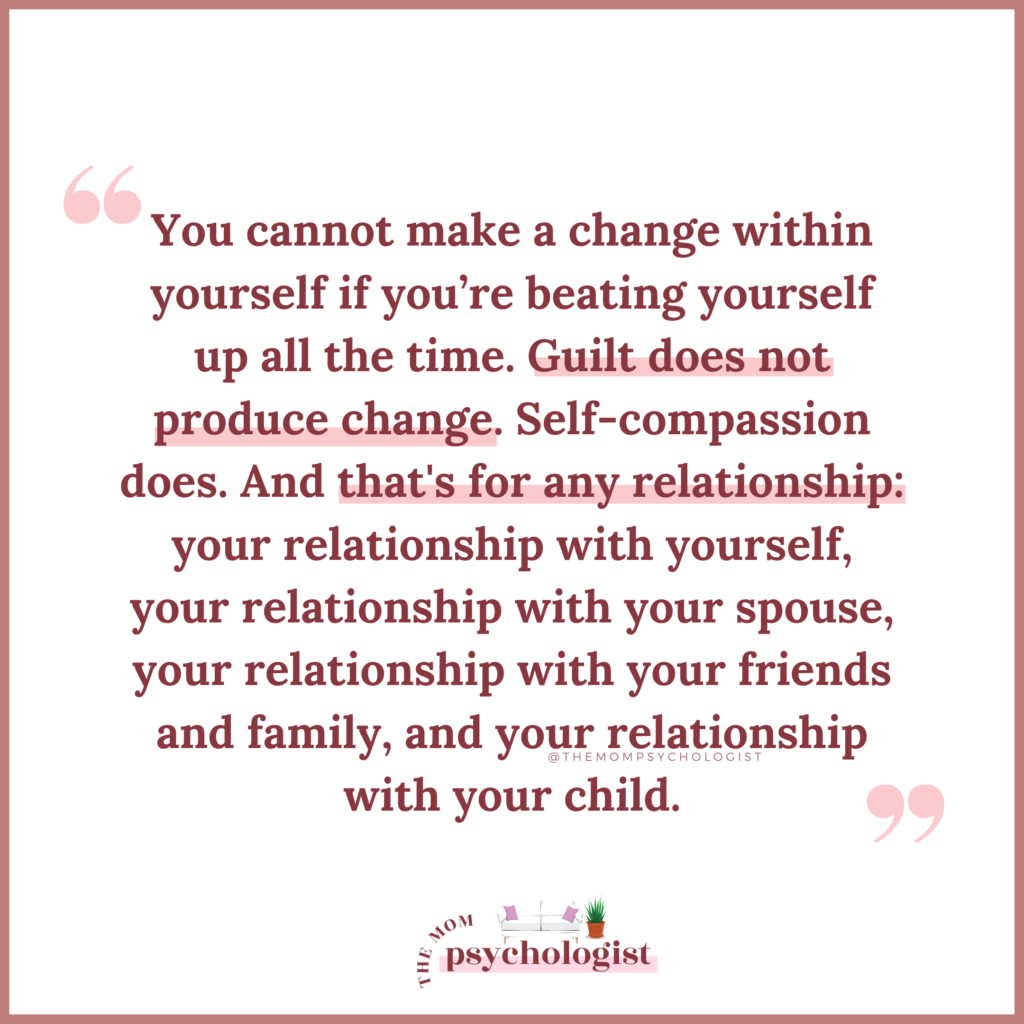
It’s so important to challenge those beliefs and have faith in yourself and have hope that change is possible.
Step #10: Focus on progress, not perfection
You’re not going to always get this right. Even the calmest, most patient parent in the world is going to lose it from time to time.
It’s a part of the human process. We can’t always control our emotions. So focus on the progress you’ve made and not on getting it right all the time.
And the same goes for your child. They will not be able to regulate their feelings all the time, so offer them compassion as you focus on the progress they’ve made.
And so when you can have compassion for yourself, you’re more likely going to have compassion for them as well.
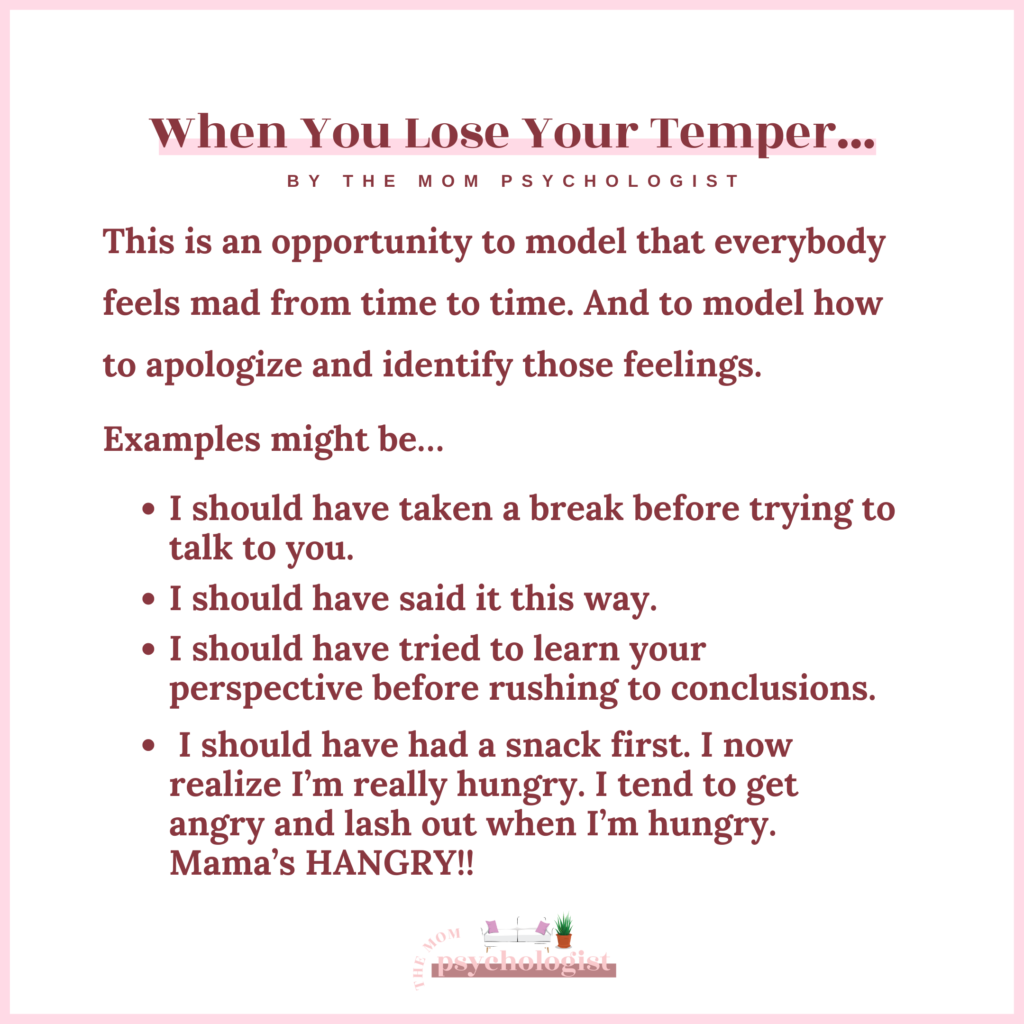

Note what triggers you to lose your cool or temper with your child, and get proactive about changing it.
When you’re calm in a calm state, maybe journal about it or talk to your spouse or a friend about what are your triggers and what can you do differently in those moments.
If your trigger is tantrums, what can you do in those moments to regulate yourself and make sure you’re not getting sucked into their feelings and their emotions? Is it you need to take more breaks? Is it you need to challenge your perspectives during these moments? Is it you need to ask for more support, or do you need better self-care practices?
Take inventory of what’s working for you right now and what’s not working for you.
And get proactive by coming up with a plan on how you’re going to handle your triggers because they will happen again.
Rooting for you,
Dr. Jazmine

P.S. Ever wonder what type of parent you are? Like do you tend to be more permissive, authoritarian, or do you strike a balance between love & limits ( authoritative)?
Take my Parenting Style Quiz and find out! All you need is 2 minutes and an email address.
Once you complete the quiz, I’ll send you a personalized report and video with your results. You’ll receive several resources that will help you grow to create more cooperation and connection.
Love this? Don’t Lose it! Click below and save it to your Pinterest!

Leave a Reply Cancel reply
Copyright The Mom Psychologist® 2025
grab my free script pack!
explore
work with me
information
About
Blog
YouTube
Podcast
Privacy Policy
Terms of Use
Product Disclaimer
Contact
TMP Times (Newsletter)